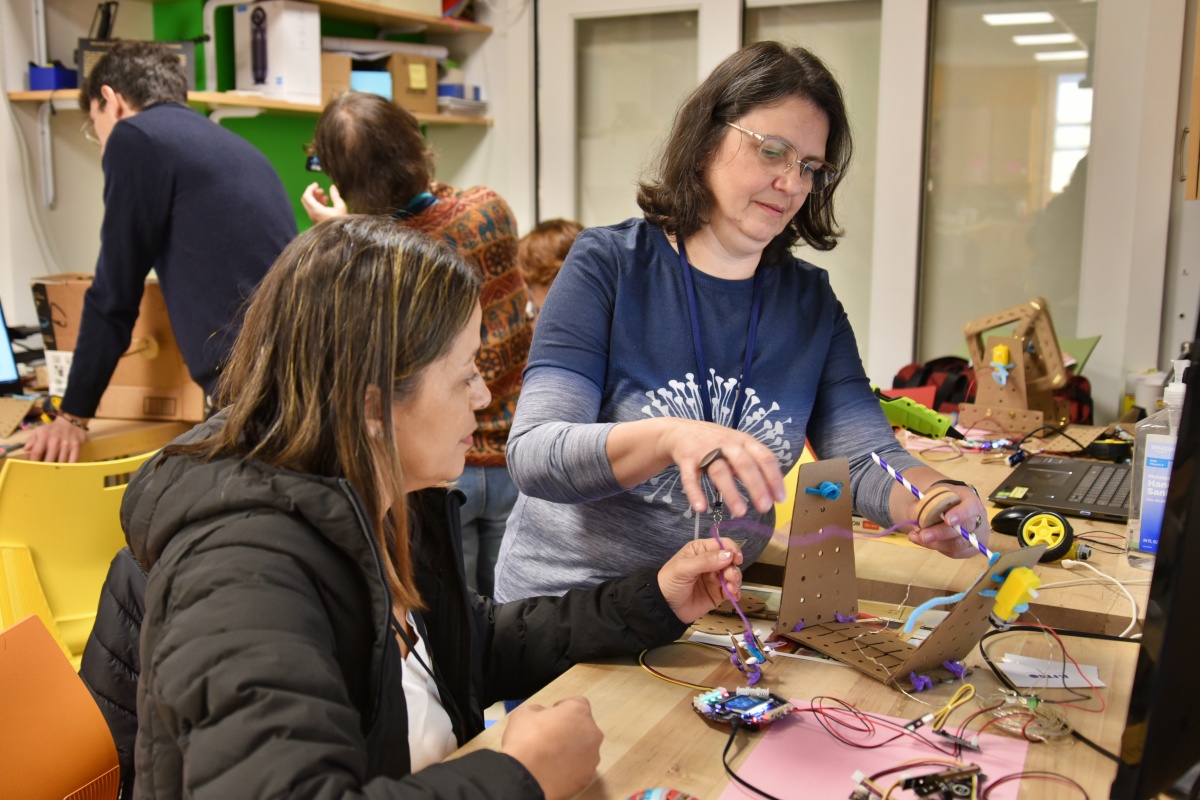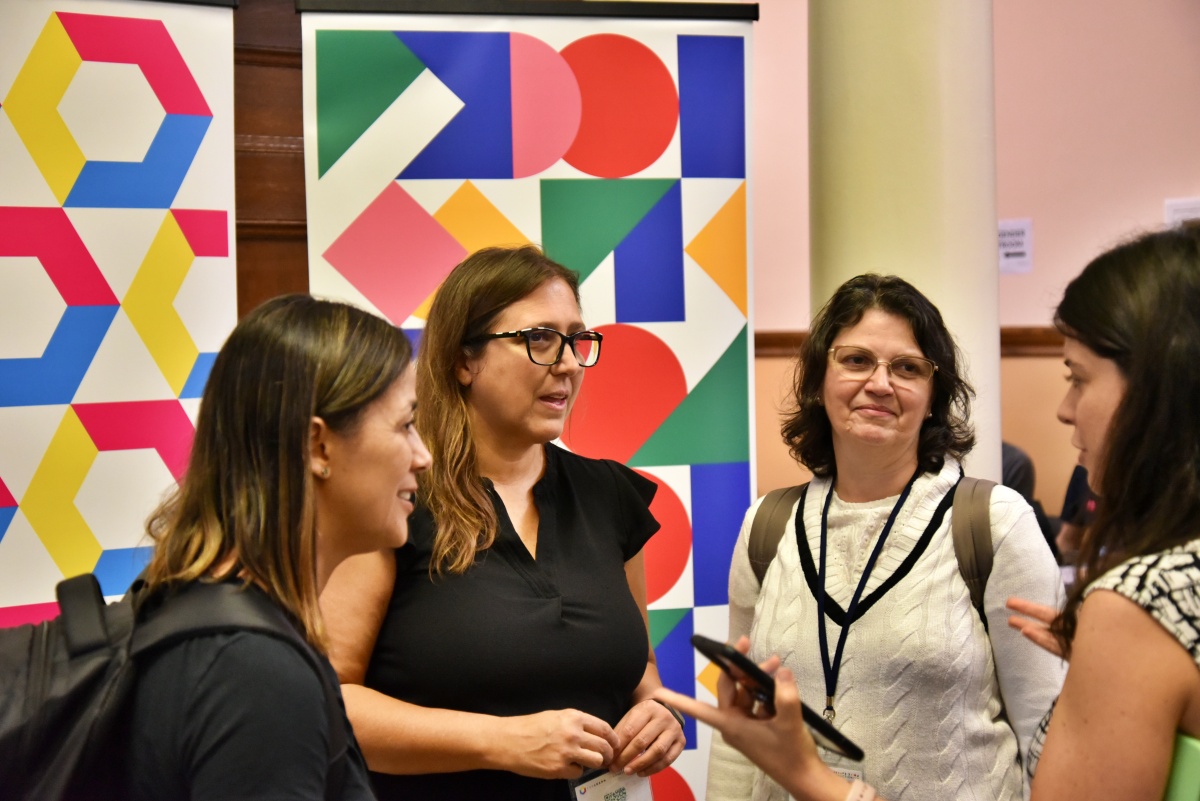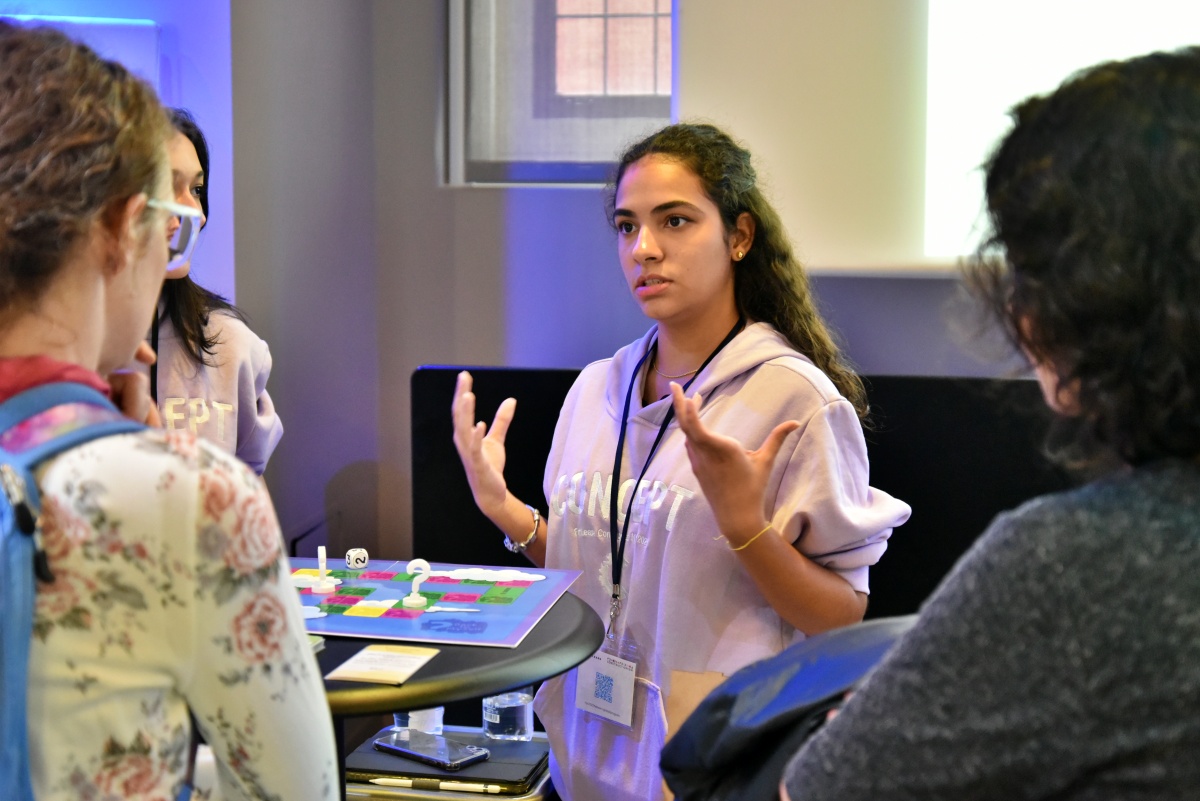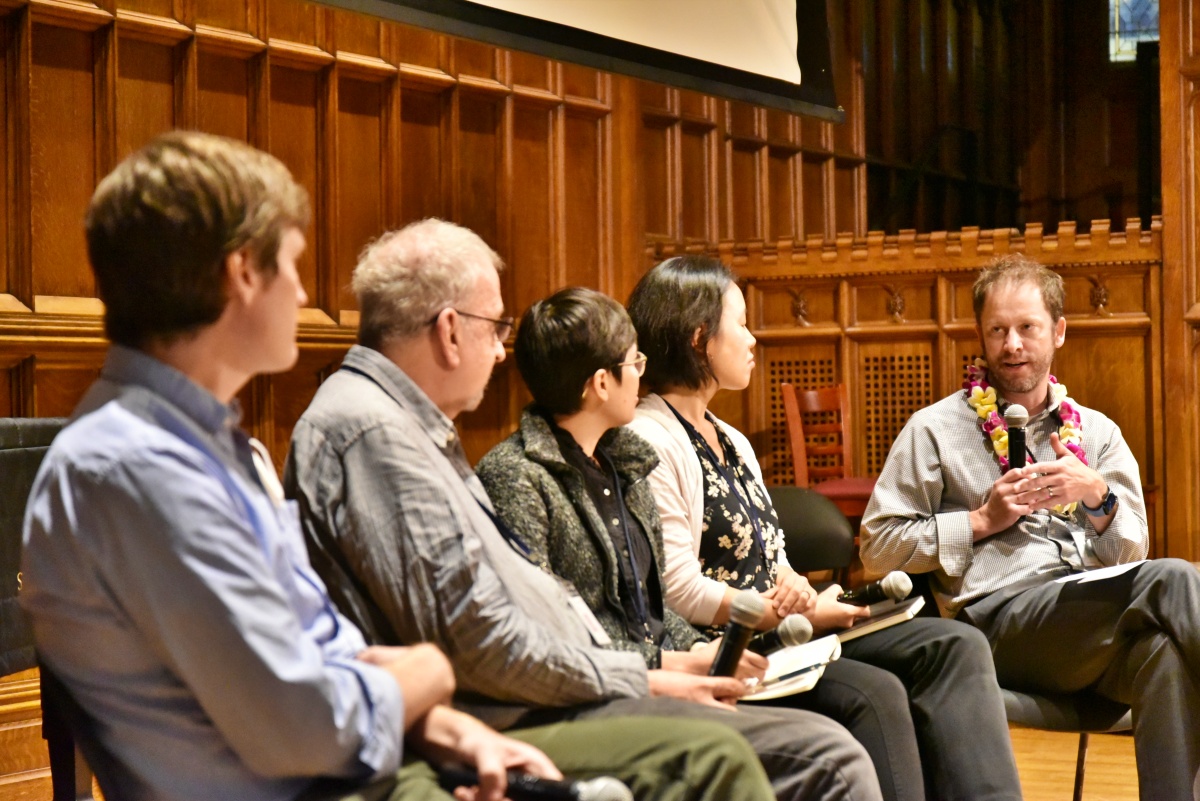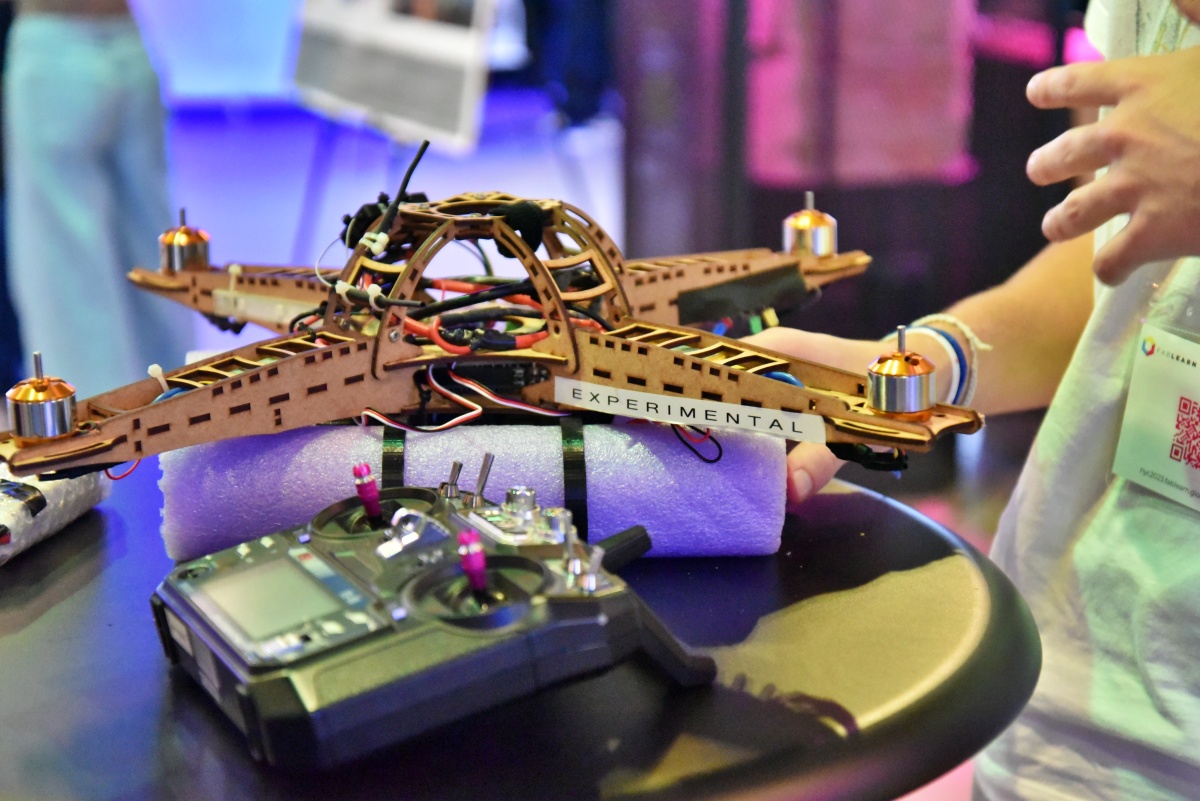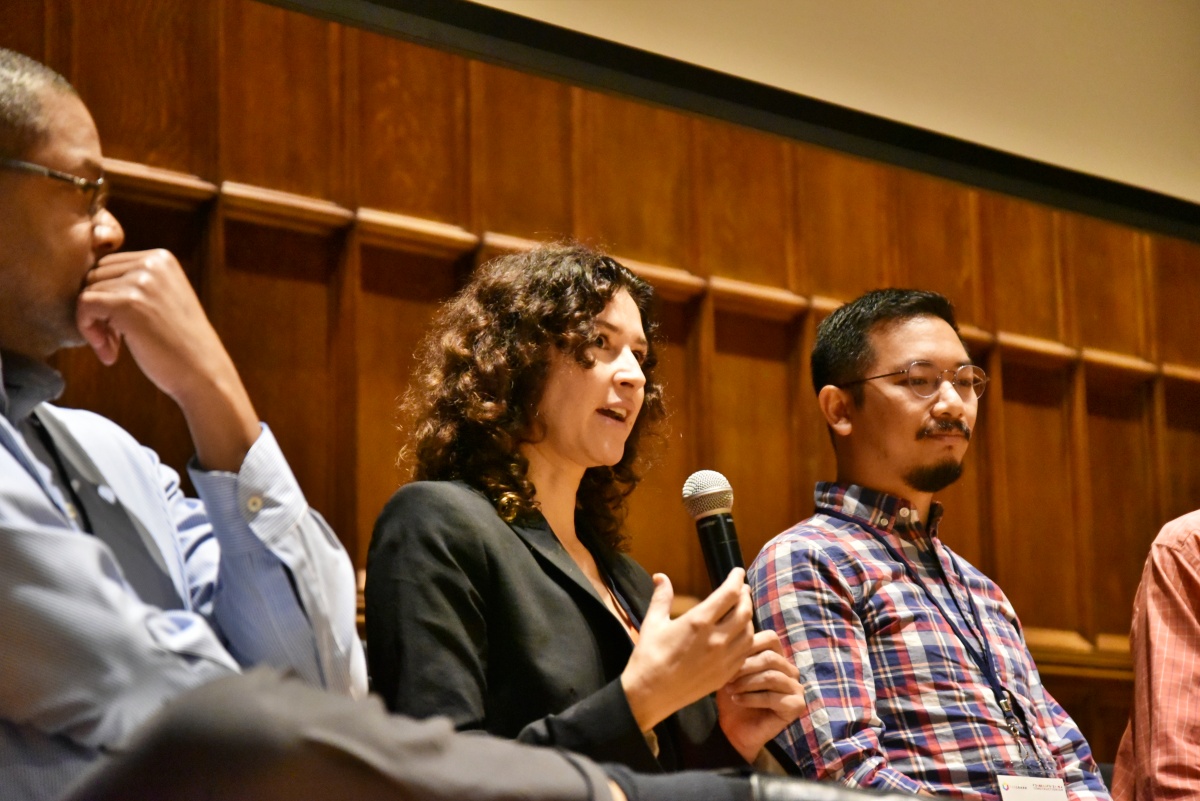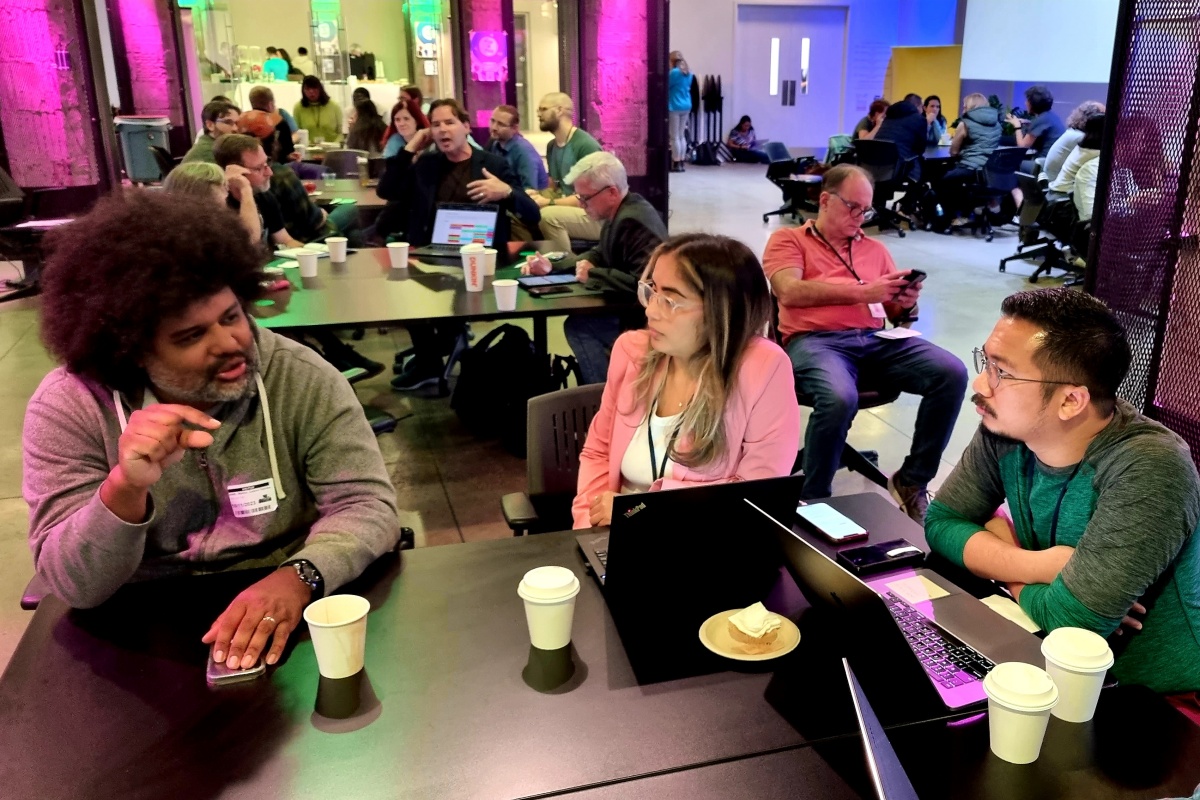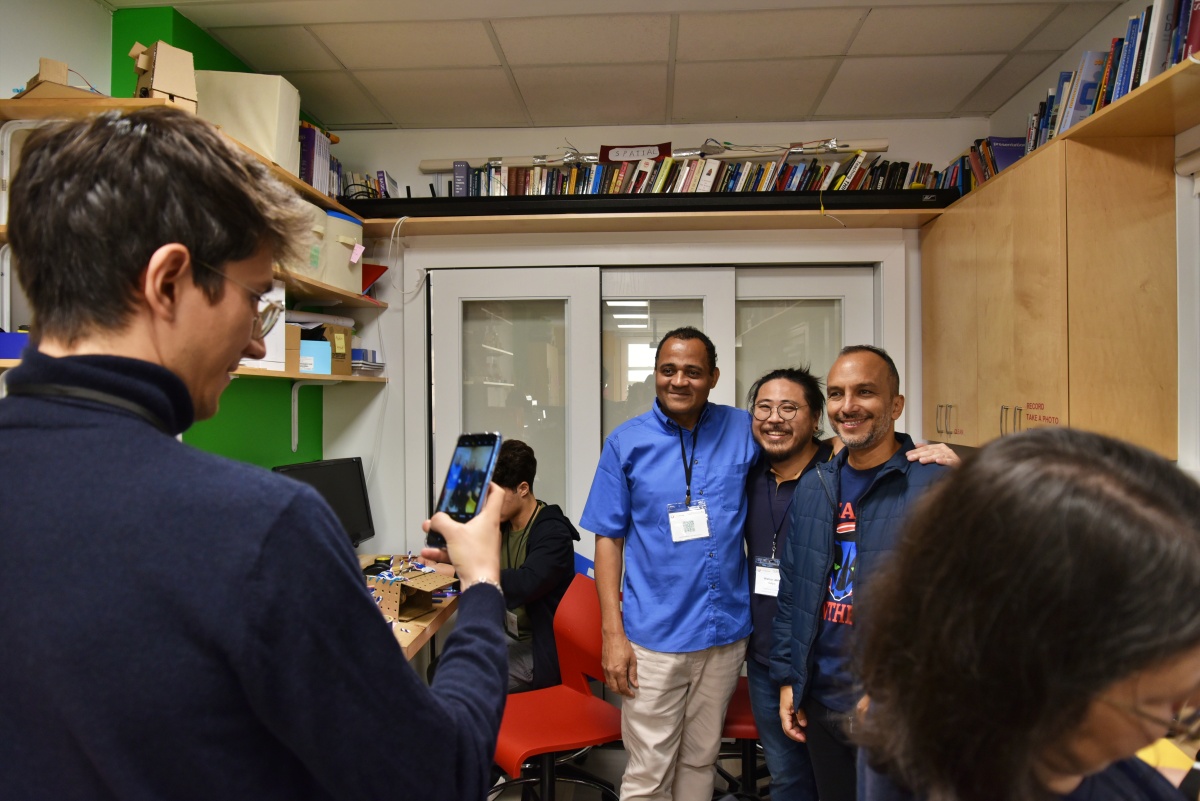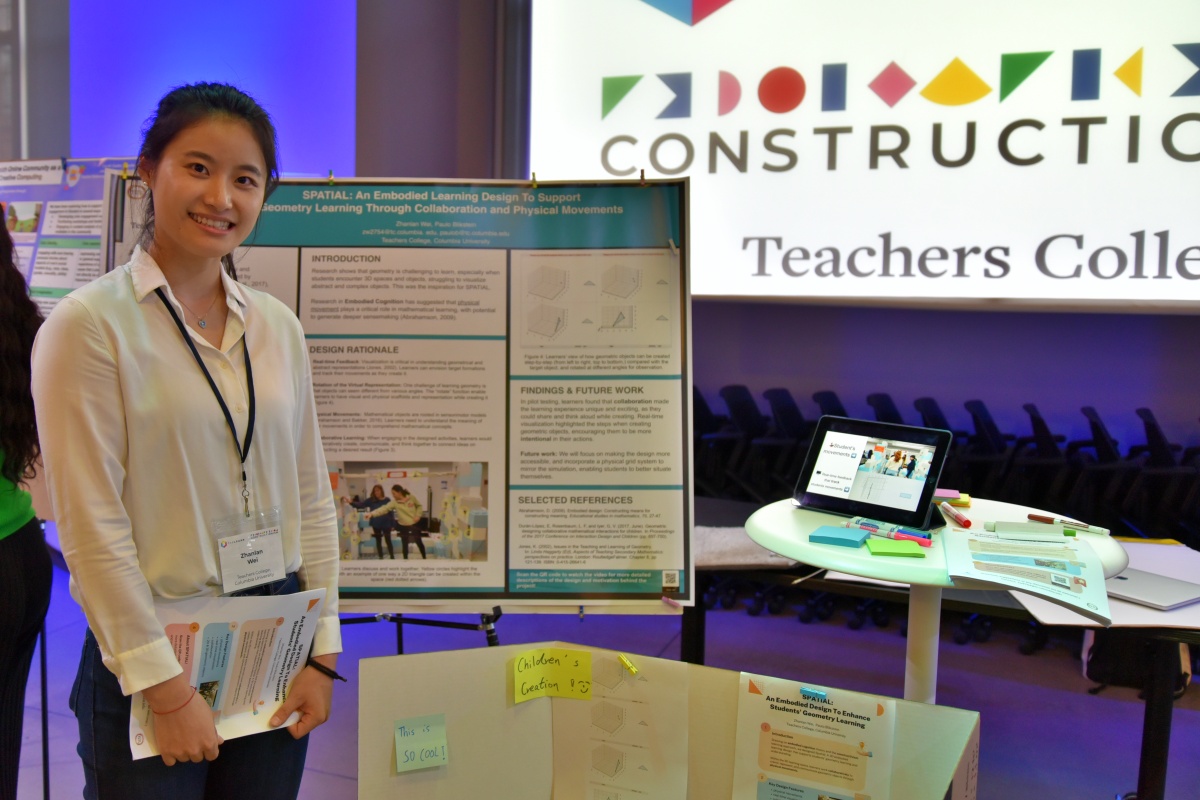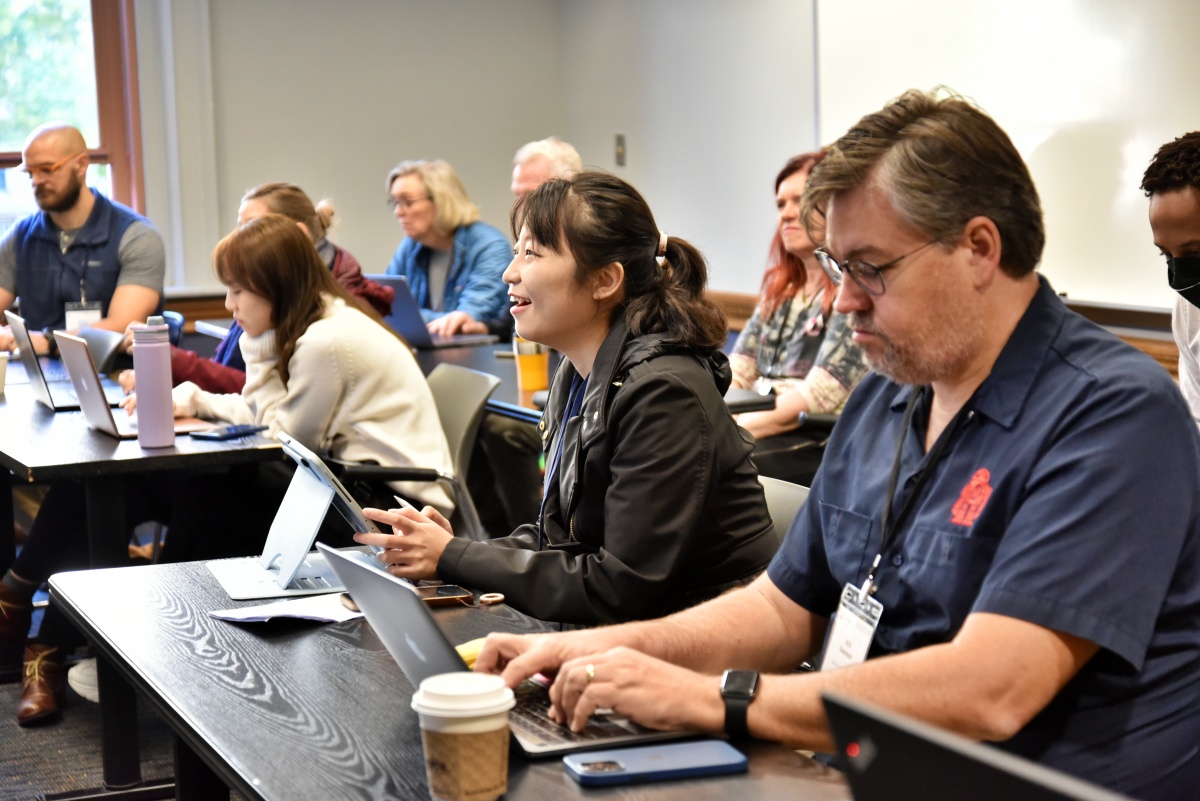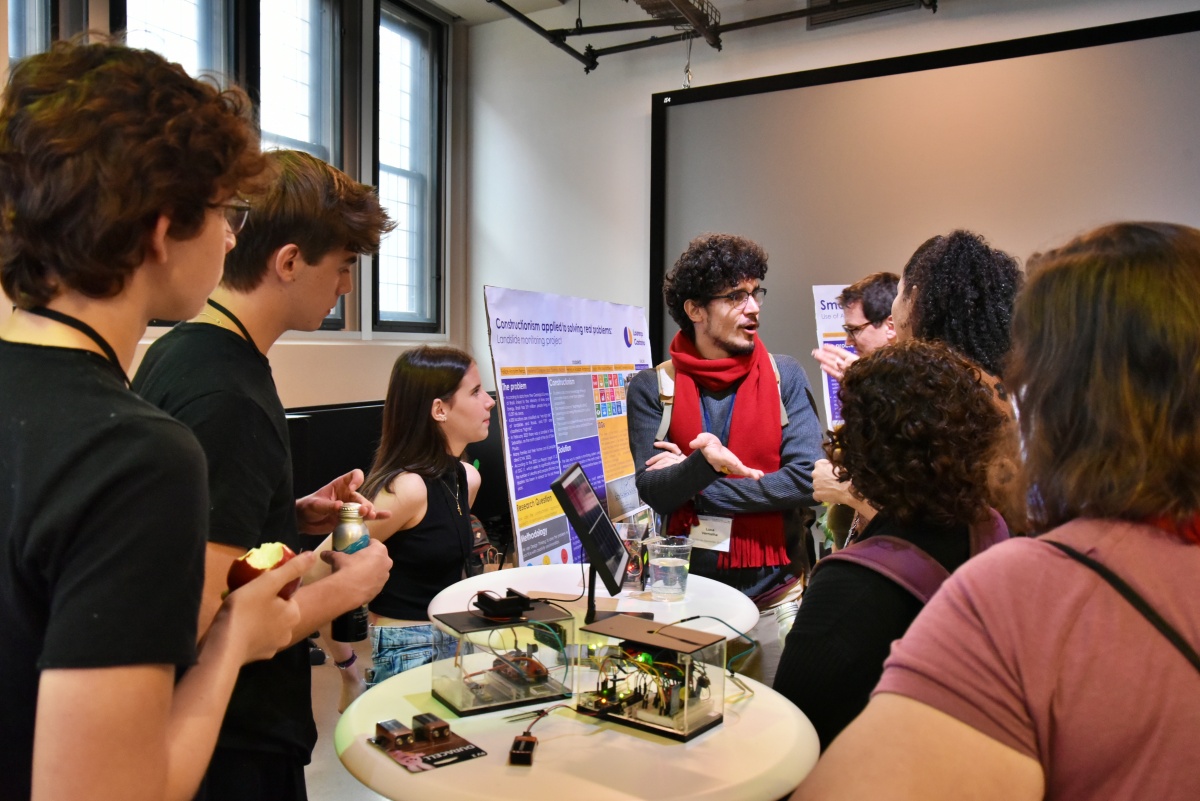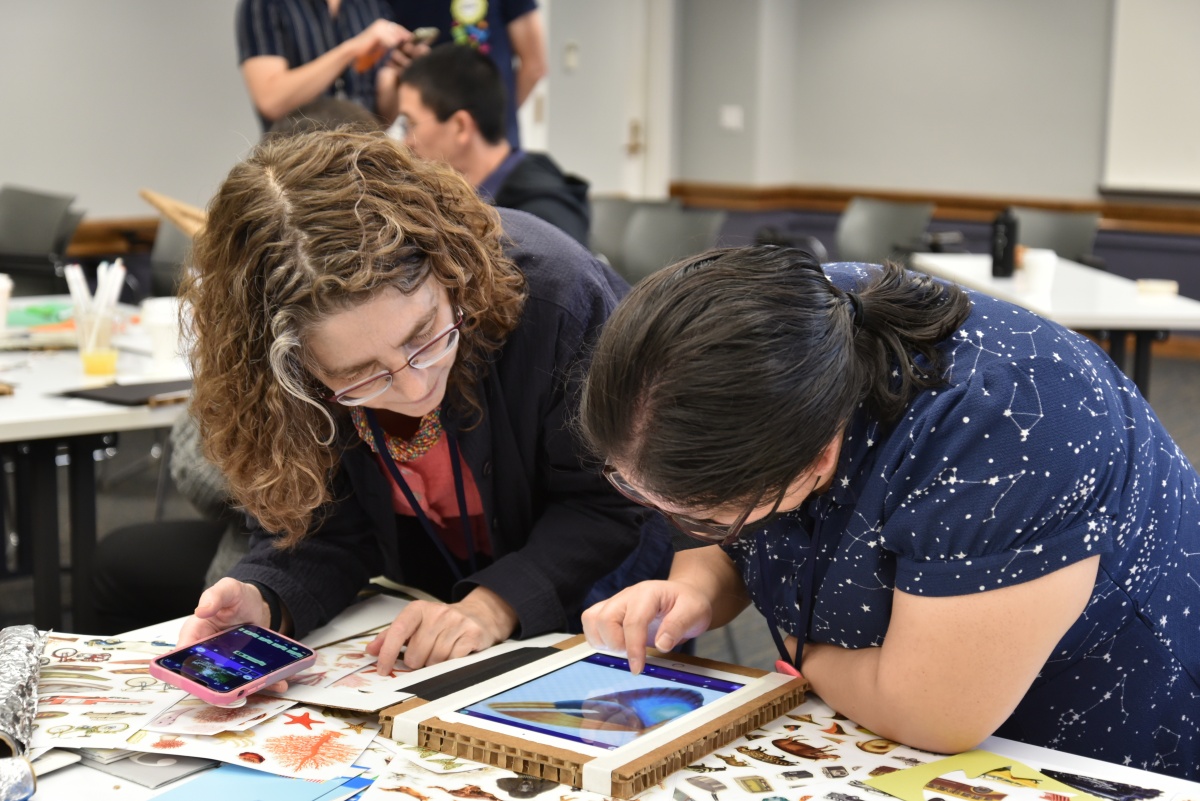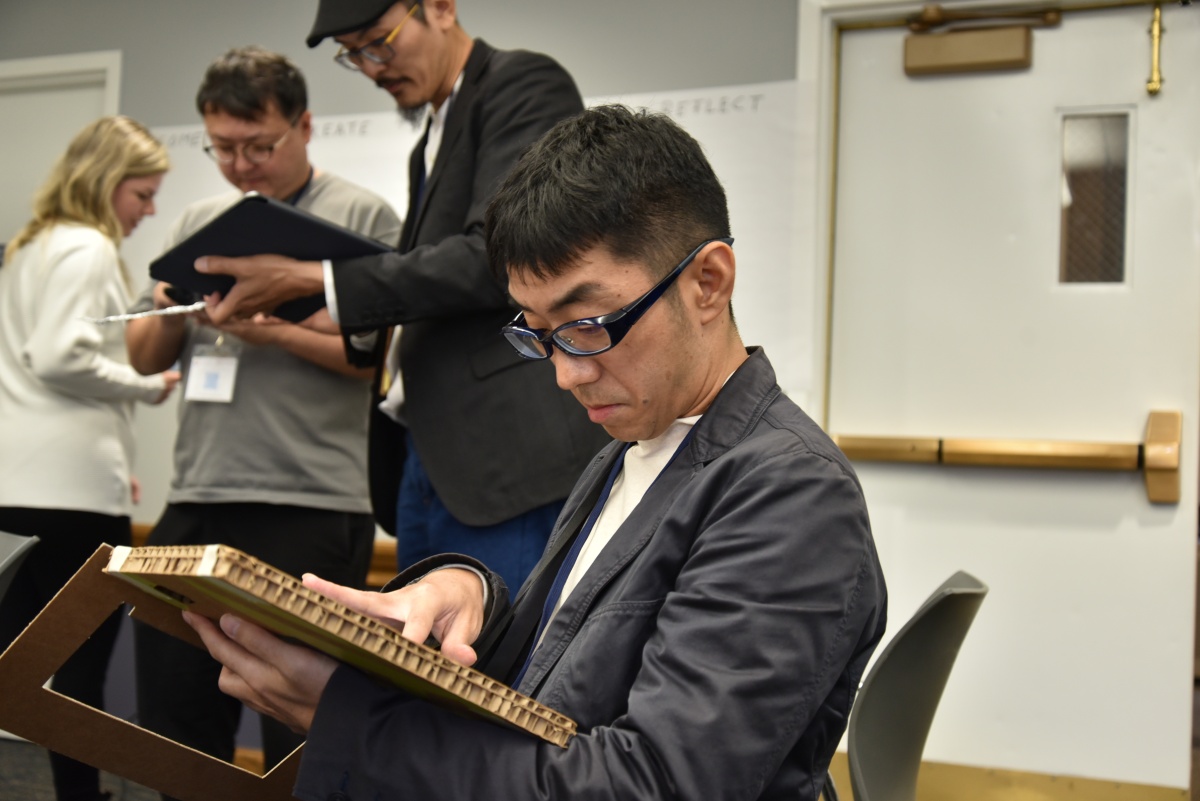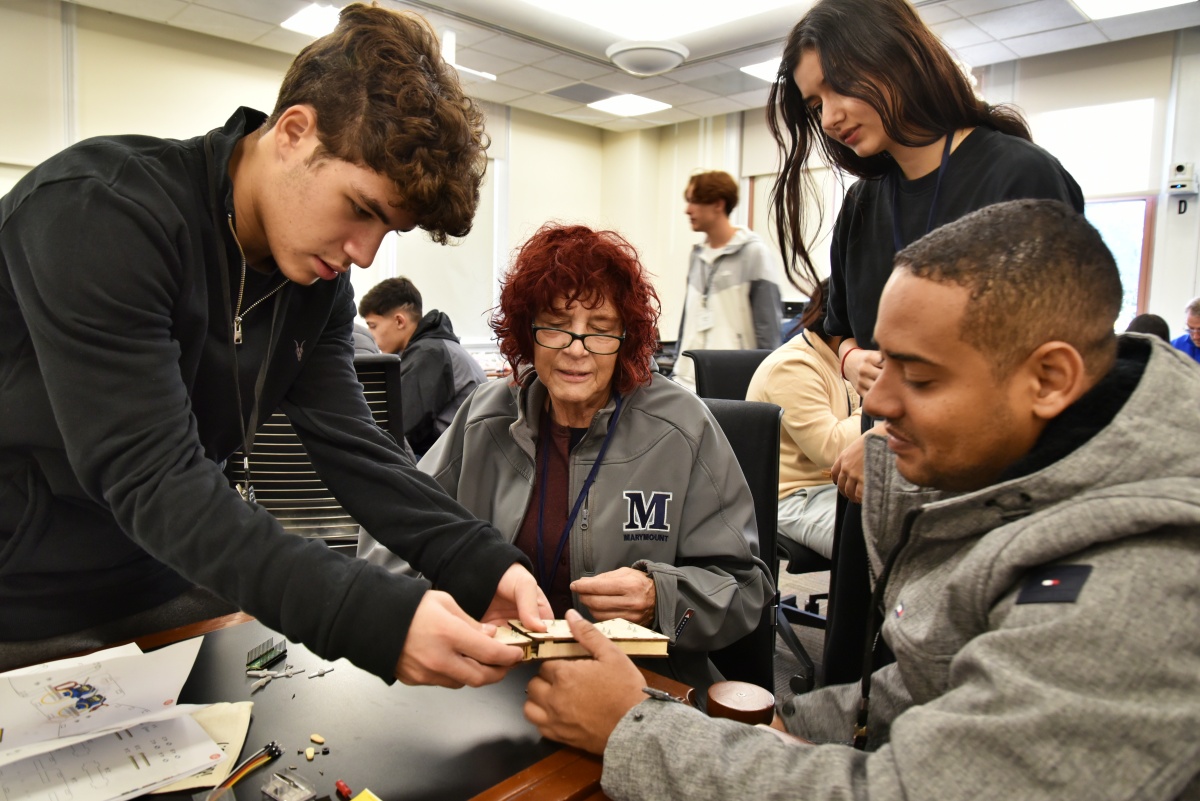The days of textbook memorization and tech-free science experiments are over. Or at least they should be. That’s what drove 340 researchers, educators and students from 27 countries to Teachers College, Columbia University earlier this fall to explore the process of learning through doing at the Constructionism / FabLearn 2023 conference.
At this conference — which for the first time merged the Constructionism and FabLearn conference communities — attendees conferred on the intersection of constructivism, digital fabrication, computer science, artificial intelligence and maker education. Five keynotes and more than 170 presentations, panels, roundtables, and workshops contributed to a field defined by robust critical thinking, empirical evidence, and sound theory.
“But [this work is] also doing all of that in emerging areas of technology and of education,” explains conference co-chair Nathan Holbert, Associate Professor of Communication, Media and Learning Technology Design at TC. “Some of the most innovative, interesting work in education is happening in this space.”
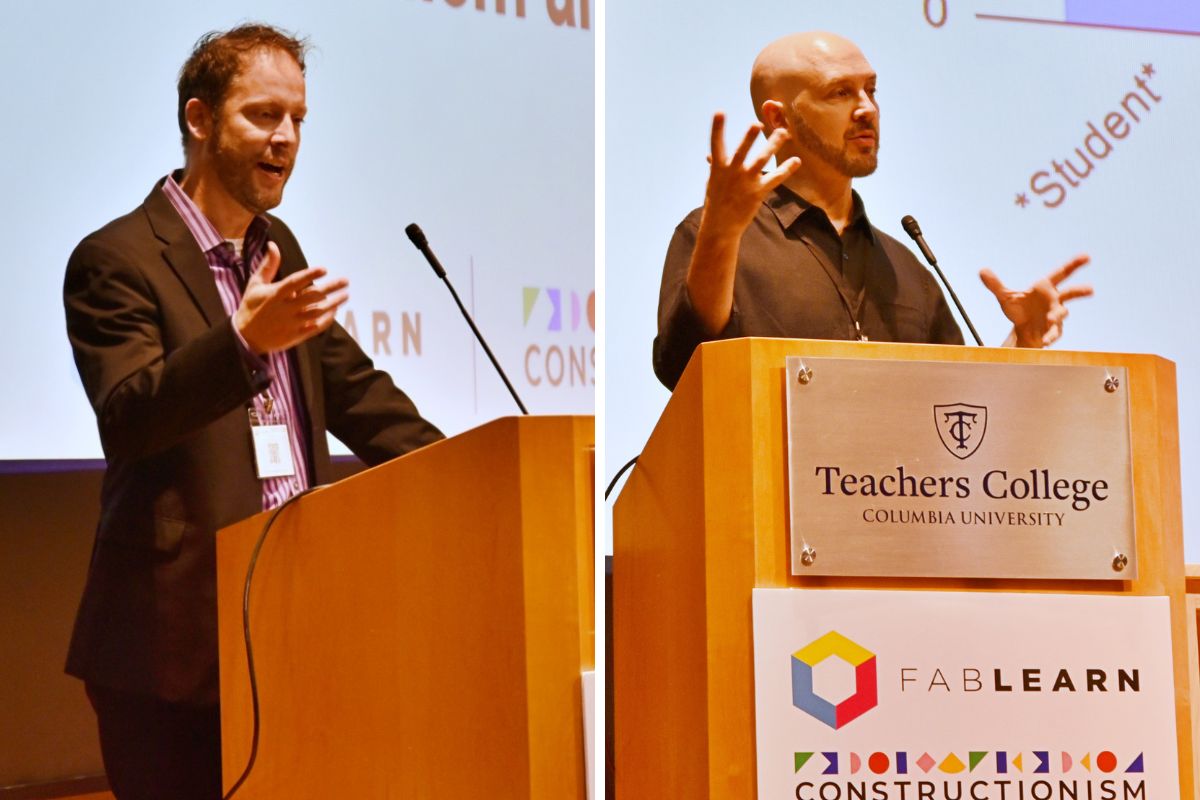
Holbert and Blikstein.
And for Holbert and fellow co-chair Paulo Blikstein, Associate Professor of Communications, Media and Learning Technologies Design, uniting scholars, educators and students in community during the recent TC gathering is not only critical to advancing the field, but also meaningful learning experiences for students across the world.
“These new ways of learning should be for all students, not just for some kids in affluent schools,” Blikstein says. “We’re trying to bring everybody together to brainstorm how we can move this forward and truly democratize it.”
Here are the key takeaways from the critical academic community’s gathering at TC.
Building hands-on learning opportunities is ultimately about equity.
For Blikstein, expanding access to makerspaces across schools, regardless of resources, is critical to helping students discover their “intellectual passions” and prepare them for the future.
“In 2023, the skills that you learn through project-based learning and these deep learning experiences are exactly the ones important for youth’s civic and work lives,” says Blikstein, who leads FabLearn, which integrates hands-on learning into classrooms across the world. “Essentially, it is about social justice. You might not get great opportunities if you don't have those skills.”
While hands-on learning used to be a “nice to have” in schools, Blikstein attests, these experiences are now “crucial” for learning and development.
“It's a really important type of activity that most kids don't have access to,” says Blikstein, noting the significance of connecting researchers with teachers and practitioners within the Constructionism and FabLearn communities. “It accelerates this process of getting this stuff into schools.”
Problem-solving and international exchange are at the heart of this robust community.
At Constructionism / FabLearn 2023, TC students and grad students from across the world joined scholars, teachers and young learners in what Holbert describes as “one of the more generous academic communities that I've been a part of.”
“Science gets done by having conversations,” says Holbert, who also leads the Snow Day Learning Lab. “Science gets done by communities getting together and discussing and debating and arguing with themselves. And also then finding new partnerships and collaborations.”
The robust academic community at the heart of the Constructionism / FabLearn conferences also offers rewarding opportunities for cultural exchange, with educators from 22 different communities ranging from Brazil to Thailand able to find common ground and collaborate, Blikstein says.
However, shared challenges coexist with unique circumstances across countries, cultures and economic inequality — with some schools imagining more advanced makerspaces while others covet more basic needs.
“We also get to see many different voices and different points of view of what's happening in the world in terms of teaching,” says Blikstein. “There's a lot of recalibrating your perceptions of what's going on in the world when you get to meet all these people.”
This work is cutting-edge across education and technology.
While much of the general public is still debating the role of generative artificial intelligence in schools, constructionist scholars are already exploring what the inevitable future of AI in schools could look like through “new tools, new interfaces, new social arrangements” and more.
“[People were] really pushing the boundaries of what's possible in emerging technological spaces,” Holbert explains, “and attending very closely to what we know about learning, what evidence we have about what good learning looks like, and what's the real state of learning environments, classrooms, societies.”
As for what’s next for TC and constructionist learning, Holbert is involved in the DFI x Play initiative at the Digital Futures Institute through his work on the “Pop and Play” podcast with Haeny Yoon. Blikstein is continuing work with FabLearn as well as the Transformative Learning Technologies Lab.
For Holbert, hosting the long-running Constructionism conference on 120th Street is a testament to TC’s role in the field. “Teachers College should be really excited about the fact that that conversation was centered here, at the innovative Smith Learning Theater that we have, that it was centered around the work that our students are doing and the work that our faculty is doing.”
